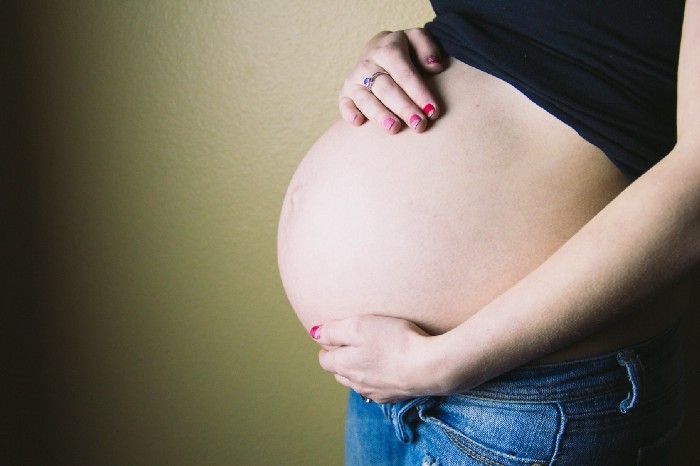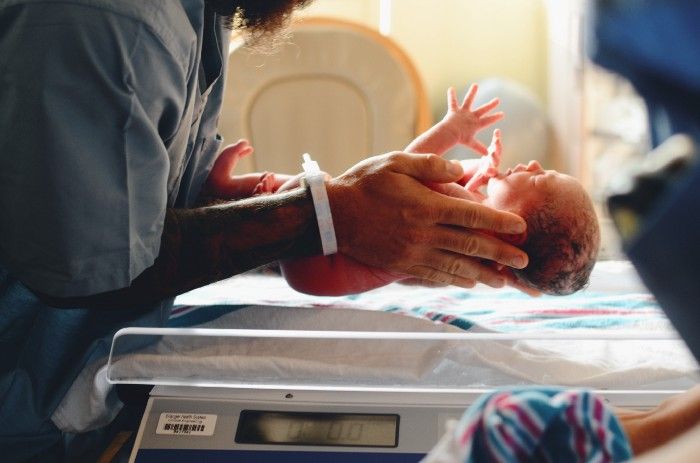
現為國際新聞編譯,寫新聞編譯也寫評論。有一個日本新聞編譯平台叫【石川カオリ的日本時事まとめ翻譯】 🌐網站:https://changyuchieh.com/ 🔍社群帳號請搜尋:石川カオリ的日本時事まとめ翻譯 📨電子報:https://changyuchieh.xyz/
Wanting to go to the hospital to have an abortion but was blocked from the door
In November 2020, in Higashihiroshima City, Hiroshima Prefecture, スオン・ティ・ボット, who came to work in Japan as a technical intern from Bac Giang Province, northern Vietnam, did not take good care of the child after giving birth to a child in the dormitory. The baby was buried in the yard of the dormitory, and was arrested the next day on charges of "abandoning to death by a person responsible for protection" and the crime of abandoning a corpse (abandoning a corpse).
A year and a half after the incident, the case was not heard until May this year. During the six consecutive days of court proceedings, more content that was not reported in the news was discovered. Although the final result was that she was sentenced to 3 years of imprisonment and 4 years of probation, even the judge was very sympathetic to her experience.
This case and the news of "Vietnamese technical intern students' death from stillbirth to abandoning corpse crime" reported on this site in the past both happened in November 2020 (the production date was only 4 days apart), and they were Vietnamese technical trainees in Kumamoto and Hiroshima prefectures. intern. The two cases are highly similar and deserve attention.
Further reading: Is stillbirth a crime of abandoning a corpse? Vietnamese technical intern found guilty of 'isolated production' in Japan

For the sake of the child, a single mother who is ready to fly to Japan for work
スオン・ティ・ボット's hometown was a rice farmer in Vietnam, and her mother went to Taiwan to work when she was a child. She has a daughter with her ex-husband. She originally worked in a garment factory in Vietnam, but after the divorce, her ex-husband did not provide monthly alimony as agreed. In order to support the family and take care of children, she decided to fly to Japan as a technical intern to work.
But this journey is not easy. Apart from preparing for travel expenses, Japanese language courses, and borrowing about 1.5 million yen from an agent in Vietnam, I originally wanted to apply for a manufacturing job, but I couldn’t get through it, so I had to apply for the type of industry. It was changed to agriculture, and the application was finally successful on the 7th time. In December 2019, the vegetable and fruit company VEGESTYLE, which flew to Higashihiroshima City, Hiroshima Prefecture, Japan, picked vegetables. Including rest time, she works 9 hours a day and earns about 100,000 yen a month. Every 2 months, she will send 180,000 yen to her hometown in Vietnam.
During her work in the vegetable and fruit company, there was basically no problem. The people in the company regarded her very seriously. She also said that the people in the company were very kind and friendly to her. However, although she studied Japanese for half a year before coming to Japan, and she also had a one-month training course after arriving in Japan, her Japanese level was only a simple greeting, and she did not often talk to Japanese employees.
Met a new boyfriend after arriving in Japan
Not long after arriving in Japan, she met a Vietnamese technical intern who was also working in Japan and welcomed the second spring of her life. In March 2020, she found that her menstrual period had never come, and she thought she should be pregnant, so she went to 2 obstetrics and gynecology departments.
The first clinic: it is recommended to switch to a large hospital
The first is an obstetrics and gynecology clinic in Hiroshima City. At that time, her Japanese ability was not enough to seek medical treatment by herself. After arriving at the clinic, she took out her health insurance card, used the mobile phone translation software and called a Japanese-speaking Vietnamese friend, and told the clinic counter: "I want to confirm whether I am pregnant." The counter of this clinic Understand her demands and help her arrange a consultation. However, after entering the clinic, she did not use the mobile phone translation software.
At that time, the doctor told her clearly that when the due date was due, she could go back and think about whether to give birth to the child or to have an abortion. If she wanted an abortion, it should be before 22 weeks of pregnancy. The doctor also told her that the clinic did not have these facilities, so she advised her to seek medical treatment at another hospital closer to where she lived, and handed her the name of the hospital on a piece of paper.
It was only later that she thought she could not use her mobile phone during the consultation, so she did not take out the translation software, and only understood a small part of what the doctor said: she knew that she was really pregnant, and that the doctor wanted her to go to another place. A hospital went to a doctor, but she did not hear when her due date was.
Second hospital: no consultation without an interpreter
After a week or two, she went to the hospital in Higashihiroshima City recommended by the first clinic alone. I thought that like last time, with my health insurance card, through the mobile phone translation software and a friend on the other end of the microphone, I could see a doctor smoothly, but I ran into a wall at the counter for making an appointment for medical treatment.
At that time, through the mobile phone translation software and a friend on the other end of the microphone, she tried to tell the counter that she wanted to have an abortion. Although she was not sure if the translation software was correct, and what the friend said, she only knew that the counter said, "If you don't have an interpreter, you can't do it. ". She had to touch her nose, replied, "Okay (はい)", and left the hospital.
Later, she tried to find a Vietnamese colleague who was better in Japanese than herself, or went to the hospital with her boyfriend, but she was rejected.

Seen again before giving birth and was rejected
Just like this, half a year has passed, and it will come to the fall of 2020. At that time, it was close to giving birth. She felt that the baby in her belly had fetal movement a while ago, but there was no movement recently, and she decided to go to the hospital she went to last time again. Although the second hospital is a little closer than the first clinic, it is still 8 kilometers away from the dormitory.
When I arrived at the hospital counter, I took out my health insurance card like last time, wrote my name on the consultation form, and told the counter through the translation software on my mobile phone: "I want to know if the baby is still healthy", and was once again told by the counter "I will go with you without an interpreter." No" was rejected.
"Kyodo News Agency" reporter Shigeyuki found the hospital and asked what happened at that time. The hospital just replied indifferently that she had no record if she did not seek medical treatment, and there was no way to confirm whether she had really been to their hospital.
In court, the defense lawyer asked her why she didn't go to another hospital at that time? She said through a judicial interpreter: "Even if I go to another hospital, I can't understand Japanese and I can't get medical treatment." When asked by a lawyer about her feelings of being rejected twice by the same hospital, she replied, "I feel very sad. Everything becomes nasty."
the day of production
On November 11th, she worked as usual, but she felt that the situation was not right early in the morning, so she went back to the dormitory to rest early, and gave birth to a daughter alone in the dormitory. She was very worried that the cry of the child would be heard by the outside world, so she first sealed the baby's mouth with tape 14 cm long and 5 cm wide, and then used her last strength to flush it in the toilet. When he returned to the room again, the little baby was dead.
She put the baby's body in a cardboard box, dug a hole in the garden of the dormitory, and buried the baby well. The next day, after she arrived at the company, she confessed everything to her colleagues. Everyone actually dug up the baby's body in the courtyard and immediately notified the police.
As a result of the forensic autopsy, the cause of death of the baby should be asphyxiation or hypothermia. At that time, she only sealed the baby's mouth and did not cover the nose, but considering that the baby was only 1-2 hours old, it was impossible to judge whether this was the main cause of the baby's death. On the other hand, the temperature outside at that time was about 12-13°C. After the baby was born, she did not help the baby to clean up the amniotic fluid or blood attached to the baby's body, nor did she wrap it in a towel and just put it on the wooden floor. superior. It is indeed possible for small babies to die because of the evaporation of water vapor on their bodies, which takes away part of their body temperature and gradually loses their temperature.

New discovery in court
After the incident, Spoon・ティ・ボット was arrested immediately. At first, she intended to stay in Japan to continue working, but as the litigation lengthened, the trial was delayed until this year. Before the trial, she just wanted to return to Vietnam to work as soon as possible, and felt that all this made her very tired. In fact, 2 days after the verdict was announced, she flew back to China immediately. However, reporters who have followed the news for a long time have noticed that the supervising group suspected of her deliberately arranged to send her back to China as soon as possible, denying her and the support group the opportunity to meet the reporters.
Having said that, through the assistance of Japanese-Vietnamese interpreters during the litigation process, many things that were not discovered beforehand were also discovered.
Delinquent companies and supervisory bodies
スオン・ティ・ボット found out that she was pregnant not long after she arrived in Japan. At that time, she still had about 1 million yen in agency fees to pay. She believed that "as soon as she was found to be pregnant, she would be sent back to China", and she did not dare to talk to her. The company or supervising organization (equivalent to an agency for migrant workers in Japan) admits the pregnancy.
During the proceedings, it was also found that the company (ベジスタイル) to which the person involved in the case belonged and the supervisory group "もみじ Collaboration", which was supposed to take care of her life, did not know that she was pregnant beforehand. To be more precise, the supervising group that visits her once a month only confirms her work status, and does not take into account the level of life. As for the company, one month before the client gave birth, a company employee informed the boss that the client's belly seemed to be getting bigger and bigger, but the president thought she was getting fatter and fatter after coming to Japan, and she never thought of the possibility of pregnancy.
lost boyfriends
The court also confirmed one thing. She was dating two Vietnamese technical interns at the same time, so when she found out she was pregnant, she didn't know who the father of the child was. After telling the two that she was pregnant, her boyfriends said, "I will find a way to be responsible." , but it didn't take long for the two to lose contact. During the trial of this case, her boyfriends were not called as witnesses, and all the responsibility for taking care of the baby fell on her alone. Yukio Okamoto, a reporter from "RCC China Broadcasting" who was on the scene, questioned whether only mothers need to bear the responsibility of protection?
In fact, she didn't want to get pregnant, she also hoped to take good contraceptive measures, but her boyfriend didn't want to wear a condom, so she could only think of other methods. She originally thought that in Japan, just like in Vietnam, she could easily buy morning-after pills at the pharmacy, but she didn't expect to find the pills for a long time, and she was really pregnant.
Extended reading: [Review] Contraceptive pills rush to Japanese Twitter hot keywords
Associate Professor Yoshihisa Saito, who is familiar with the situation of technical intern trainees in Vietnam, believes that it is impossible to prohibit technical intern trainees from having sex while working in Japan, at least during the first month of technical intern training in Japan. , should they be told how to get contraceptives in Japan? In the future, I won't fall into the situation of "thinking I can buy it, but I can't".
Judge: The client's situation deserves sympathy
On May 31, Judge Mimura Sano of the Hiroshima District Court convicted スオン・ティ・ボット of the crime of "abandoning the person responsible for protecting the person to death" and was given a four-year suspended sentence.
The verdict pointed out that although the crime itself was quite vicious, the technical intern misunderstood that if she became pregnant, she would be sent back to the country, and did not dare to admit the fact of pregnancy to the surrounding. Towards the fate of isolated production. The parties were isolated in society until the day of delivery, which deserves sympathy. It is too harsh to assign all the responsibility for the crime in this case to the parties.

How hard is it for technical intern trainees to have children in Japan?
This site has reported in the past that whether it is based on the "Act on the Correction of Skilled Practices " or the " Act on Equal Employment Opportunities for Men and Women ", in theory, technical intern trainees in Japan are also subject to Japanese labor laws. Differential treatment is given for reasons such as production. Of course, the technical intern cannot be expelled because the technical intern is pregnant. But in practice this is not the case.
Further reading: Is stillbirth a crime of abandoning a corpse? Vietnamese technical intern found guilty of 'isolated production' in Japan
Suppose the technical intern meets a very good employer and is willing to assist the person concerned to have a child, but the technical intern only has a 3-year visa, plus or minus the maternity leave and parental leave, and there are no days to work. Most of the technical interns will borrow an agency fee in advance before they go to work in Japan. If you are pregnant and give birth to a child in Japan, even if you apply for maternity leave, the fee will increase or decrease. I want to send more money back home. In this case, for employers or supervising organizations (the intermediary of technical intern trainees in Japan), most of them will persuade them to quit. It is more realistic to let the technical intern trainees end their technical intern training early and go directly to their home countries to produce and take care of their children.
Not only that, from the very beginning, the technical intern system “did not think that technical intern trainees might become pregnant”. Even if technical intern trainees become pregnant and give birth while working in Japan, the corresponding supporting measures and relief methods are relatively imperfect at present. If there is no person who understands the relevant relief system immediately and assists the client and the baby to complete the relevant administrative procedures, it is very likely that the baby's visa application (*), maternity leave, childcare allowance and other benefits and guarantees will be missed.
*Although the "Technical Internship Visa" does not allow technical intern trainees to bring their family members to Japan, if they are technical intern trainees, international students, or women with "special skills No. As long as there is immediate assistance from someone who understands the administrative procedures, you can help your baby get a "special activity" visa. Production outside of Japan (such as returning to the home country to give birth to a child, and then re-entering Japan) does not apply.
The Japanese government finally launches an investigation
According to statistics from the Ministry of Health, Labour and Welfare, from November 2017 to December 2020, at least 637 technical intern trainees chose to interrupt their internships due to pregnancy, and only 11 of them continued to complete their internships (aka migrant work) after giving birth. It is believed that in most cases, they were forced to return to China due to lack of knowledge about the legal system. In addition, this statistic is limited to the data that the supervisory organization has reported to the superiors, and there should be many black numbers in the actual situation.
As a result, the Immigration and Residence Administration and the Ministry of Health, Labour and Welfare finally disclosed to the media this month that they have recently launched an investigation into about 490 technical intern trainees in Japan to find out whether the technical intern trainees were forced to sign "If they become pregnant, they will resign" documents, or whether they have heard of other technical intern trainees involuntarily resigning due to pregnancy, and whether they are aware of the social welfare system related to pregnancy and other practical conditions. This is believed to be the first time the Japanese government has launched an investigation into the matter.
This article is simultaneously published in the Japanese current affairs まとめ translation of Kaori Ishikawa .
Like my work?
Don't forget to support or like, so I know you are with me..
Comment…